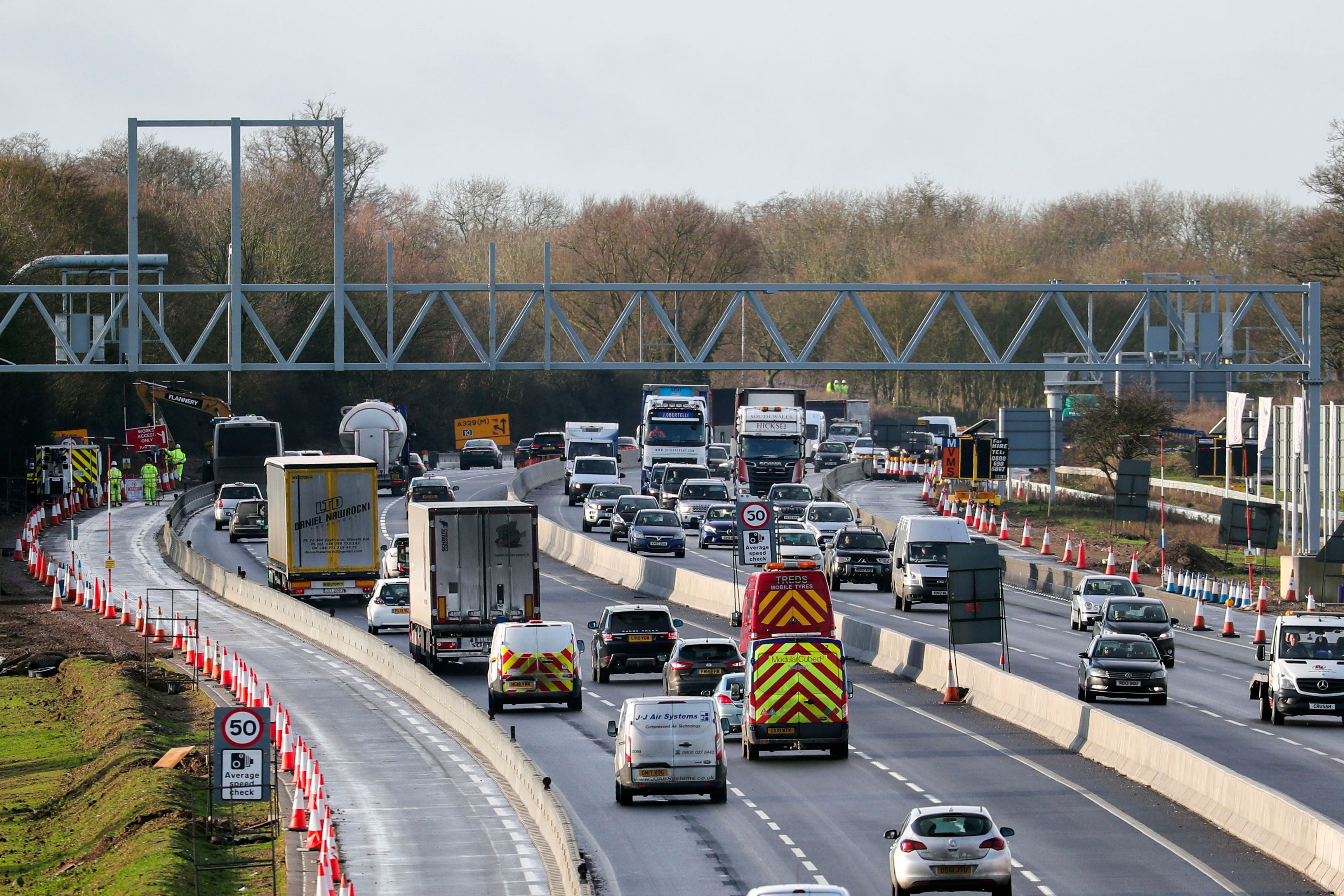No new road building projects starting before 2030 will be created in England
National Highways has advised ministers it should focus on completing ongoing and delayed schemes.

No new major road building projects in England starting before 2030 will be created, National Highways has proposed.
The Government-owned company has advised ministers it should focus on completing ongoing and delayed schemes, as well as improving existing roads.
Many National Highways major projects are behind schedule and over budget.
Public spending watchdog the National Audit Office (NAO) warned in November 2022 that 33 schemes were delayed by as much as three years, meaning those planned for between April 2020 and March 2025 will cost an estimated £3.3 billion more than initially expected.
The plans set out today will help to enhance connectivity and boost growth
Projects such as building a dual carriage and tunnel near Stonehenge, Wiltshire, and the Lower Thames Crossing between Kent and Essex have not received development consent.
In its proposal for the third road investment strategy (RIS3), which will cover the five-year period from April 2025, National Highways is proposing to work on existing projects.
The company plans to focus on reducing fatalities and serious injuries through modifications to single carriageway A roads.
It wants to increase investment in smaller schemes valued at between £2 million and £25 million to tackle safety and congestion problems, often by improving slip roads and junctions connecting to local roads.
There are also plans for 2,500 public electric vehicle chargepoints.
Roads minister Richard Holden said: “Our roads are vital to our economy, and the plans set out today will help to enhance connectivity and boost growth, while protecting the environment.
“Working with National Highways, we are committed to delivering safe, reliable journeys and reducing congestion in a way that supports our path to net zero.”
National Highways chief executive Nick Harris said: ”Our network of motorways and A-roads has a critical role to play over the next 30 years in supporting growth and levelling up.
“They bind together the regions and nations of the UK, facilitating national and international trade, and even under conservative forecasts demand for the network will continue to increase up to 2050.
“While we strive to maintain safe and reliable journeys for the vehicles that rely on our network each day, we know that ever higher levels of social and environmental responsibility will, quite rightly, be required of us.
“This means we will need to find new and innovative ways to continue connecting the country by facilitating active travel and public transport, and also using digital technology to help customers make more informed decisions and managing our network more efficiently.”
Steve Gooding, director of the RAC Foundation, said: “Achieving the vision for the strategic road network that we need requires two big challenges to be addressed: the fact that many of the roads and the structures that carry or span them are now decades old and in need of costly but essential structural maintenance, and the fact that absorbing more traffic without adding more capacity generally means more congestion.
“The fastest growing challenge faced by our roads is likely to be the effects of climate change.
“More extreme temperatures and rising levels of rainfall will lead to additional road closures and extra damage.
“Maintenance budgets need to go beyond filling in the potholes and painting the white lines to making sure routes are weather-proof. This won’t be cheap, but it is essential.”





